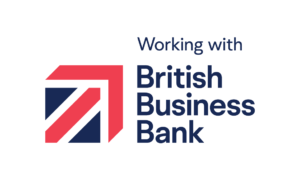

The Coronavirus Business Interruption Loans Scheme
UPDATE: 20/05/2020
We are pleased to share that British Business Bank announced TradeBridge as a new delivery partner for the Coronavirus Business Interruption Loan Scheme (CBILS).
As a CBILS lender, TradeBridge are now able to provide government backed financial support to businesses across the UK that are losing revenue or are experiencing a disruption to their cashflow because of the Covid-19 outbreak. Initially, we are choosing to focus our efforts on the healthcare sector where we already have many existing clients and we are ramping up our business teams quickly to ensure we can deploy vital funding and working capital as soon as possible. We are here and ready to help, so please register your interest here.
We’ve seen a high volume of questions about the Coronavirus Business Interruption Loan Scheme (CBILS) over the last few weeks, so we have pulled together the key information. We will update further as new information becomes available.
About the Coronavirus Business Interruption Loan Scheme (CBILS)

The Coronavirus Business Interruption Loan Scheme, delivered through more than 50 British Business Bank accredited lenders, is designed to support the continued provision of finance to UK smaller businesses (SMEs) during the Covid-19 outbreak. The scheme enables lenders to provide facilities of up to £5m to smaller businesses across the UK who are experiencing lost or deferred revenues, leading to disruptions to their cashflow. A programme that originally had £1b of government-backed lending, has now been announced to be demand-led, providing whatever the market needs.
The scheme supports a wide range of business finance products, including term loans, overdrafts, invoice finance and asset finance facilities.
Who are the accredited lenders?
More than 80% of the UK’s smaller businesses have a finance relationship with CBILS’ 50+ accredited lenders. The British Business Bank is accelerating at pace the onboarding of new lenders to further extend the scheme’s reach.
For those that are interested in applying for finance through CBILS, we’ve pulled together a summary of all the key features in our quick guide below (updated on 27th April 2020).
About the Coronavirus Large Business Interruption Loan Scheme (CBILS)
The Coronavirus Large Business Interruption Loan Scheme (CLBILS) can help provide facilities of up to £25m for businesses with turnover from £45m up to £250m, and facilities of up to £50m for those businesses with a turnover of more than £250m who are suffering disruption to their cashflow due to lost or deferred revenues during the Covid-19 outbreak.
The new CLBILS scheme can support term loans, revolving credit facilities (including overdrafts), invoice finance and asset finance facilities. It is designed to give lenders greater confidence to provide funding by providing a partial guarantee of 80% of the outstanding facility balance.
Detailed information on CLBILS can be found on the British Business Bank website – Coronavirus Large Business Interruption Loan Scheme (CLBILS).
A Quick Guide to CBILS
-
Up to £5m facility – the maximum value of a facility provided under the scheme will be £5m, available on repayment terms of up to six years. A number of the banks are limiting the amount that can be applied for to:
-
2 x annual wage bill or
-
25% of turnover
-
-
No guarantee fee for SMEs to access the scheme – No fee for SME businesses with a turnover of up to £45m. Lenders will pay a fee to access the scheme
-
Interest and fees paid by Government for 12 months – The Government will make a Business Interruption Payment to cover the first 12 months of interest payments and any lender-levied fees, so most eligible businesses will benefit from no upfront costs and lower initial repayments.
However, as the funds are those of the individual bank/alternative lender, the interest after the first 12 months and duration of any capital repayment holidays will vary from lender to lender.
-
Finance terms – Finance terms are up to six years for term loans and asset finance facilities. For overdrafts and invoice finance facilities, terms will be up to three years
-
Security
-
Insufficient security is no longer a condition to access the scheme (this was updated w/c 7th April)
-
No personal guarantees required for facilities under £250,000
-
Personal guarantees may still be required, at a lender’s discretion, for facilities above £250,000, but they exclude the Principal Private Residence (PPR), and recoveries under these are capped at a maximum of 20% of the outstanding balance of the CBILS facility, after the proceeds of business assets have been applied.
-
80% guarantee – the scheme provides the lender with a government-backed, partial guarantee (80%) against the outstanding facility balance, subject to an overall cap per lender.
-
-
The borrower always remains 100% liable for the debt.
Managed by the British Business Bank on behalf of, and with the financial backing of, the Secretary of State for Business, Energy & Industrial Strategy. British Business Bank plc is a development bank wholly owned by HM Government. It is not authorised or regulated by the PRA or the FCA. Visit british-business-bank.co.uk
Is your business eligible for CBILS?
Businesses from most sectors can apply for the full amount of the facility. To be eligible for a facility under CBILS, an SME must:
-
Be UK-based in its business activity, with annual turnover not in excess of £45m
-
Have a borrowing proposal which the lender would consider viable, were it not for the current pandemic.
-
Self-certify that it has been adversely impacted by the Coronavirus (COVID-19) (See box below).
CBILS – how to self-certify
There is still some ambiguity around self-certification and how, if at all, it impacts on documentation required by the lenders. We would recommend that the following is likely to be needed:
-
Proof that the business was viable pre COVID-19 (lenders are likely to look at last financial year to assess whether a business could have repaid the CBILS borrowing last year, and similarly on any pre COVID-19 projections that business may have prepared).
-
Proof that any cash flow issues facing the business are attributable to COVID-19 – lenders require companies to provide key information, specifically: cashflow projection, a summary of historical results and a Coronavirus impact analysis. Most lenders have a questionnaire on their website to help businesses complete this information (e.g. Lloyds Bank for Business)

Access to the scheme
CBILS is accessible through the British Business Bank’s 50+ accredited lenders, who are listed here.
COVID-19 support
Information on all other forms on financial support for business during the Coronavirus pandemic and further guidance on improving your business’s cash position, can be found at The Business Finance Guide


